Today we are taking a look at the ASRock 4×4 BOX-5800U. This is a mini PC that as the name suggests has an onboard AMD Ryzen 7-5800U. Providing high-level context, like the ASUS PN51-S1 we reviewed recently, this is a quite capable and very compact PC. It is also one that as we have been reviewing Project TinyMiniMicro nodes we received many requests to look at, so we are reviewing as part of our newer STH Mini PC series. With that, let us get to the review.
ASRock 4×4 BOX-5800U Background
If you want to see the relative size compared to the Dell OptiPlex Micro 1L PC, that is in the first minute of the associated video. We also have noise testing live so you can hear the fan noise. This unit is fairly quiet, but also folks want to know the tone of fans, and so we wanted to show that as well.
As always, we suggest opening this in its own browser, tab, or app for the best viewing experience.
We purchased the unit for $599 a few weeks ago but the price fluctuates. When we first were writing the main site review, it was up to $639. As this review is going live (2022-09-29) it is now $615 with 15% off (~$92) for only $523 if using Zip as a payment method (Newegg Affiliate link.) If you do not use Zip, it is still $615.
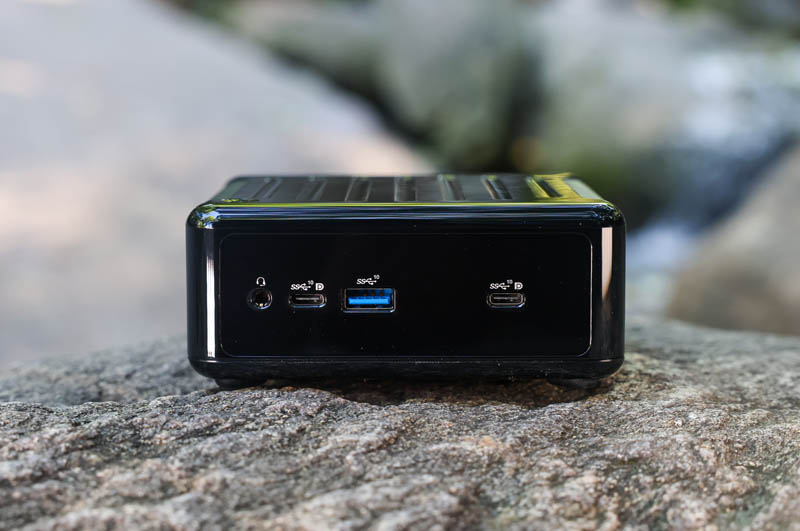
That barebones price includes the system, power supply, motherboard, WiFi 6E, and the AMD Ryzen 7 5800U processor. This is a low-power 8-core/16-thread Zen 3 CPU. It did not, however, include memory or a SSD.
We tried a number of configurations, but we are using our trusty G.Skill 2x 32GB DIMM kit for 64GB here. We also tried 2x 8GB and 2x 16GB configurations. While we are using the 64GB configuration, realistically, 16GB or 32GB will be a wiser choice.
We also are using a HP EX900 Plus 1TB and WD Blue SN570 1TB SSDs. The reason we used two different SSDs is that we used one for Windows 11 and one for Proxmox VE/ Ubuntu.
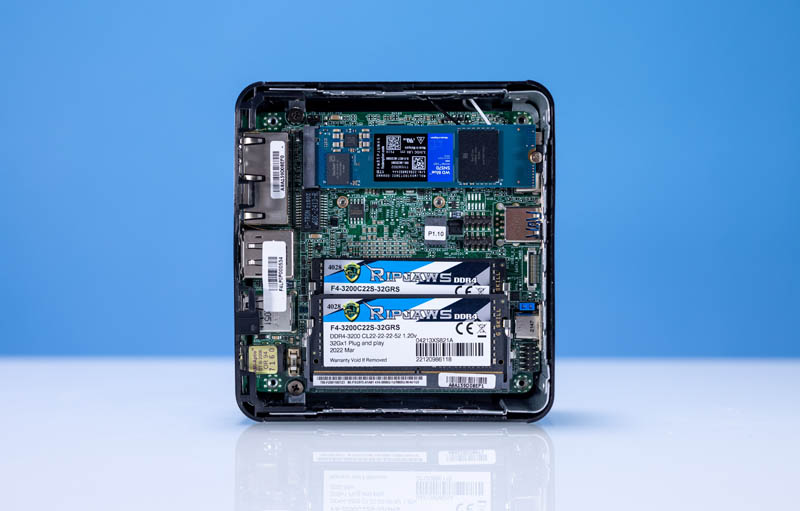
Both the SSD and memory will add to the cost, but this is a very compact platform. We did not get Windows 11 (Pro) pre-installed in our barebones, so that was an additional cost as well. With that, let us get to the hardware overview.
ASRock 4×4 BOX-5800U External Hardware Overview
The system itself is very small. It is only 110.0 x 117.5 x 47.85mm, making it much smaller than many of the 1L corporate desktop PCs and more of a NUC-like form factor.
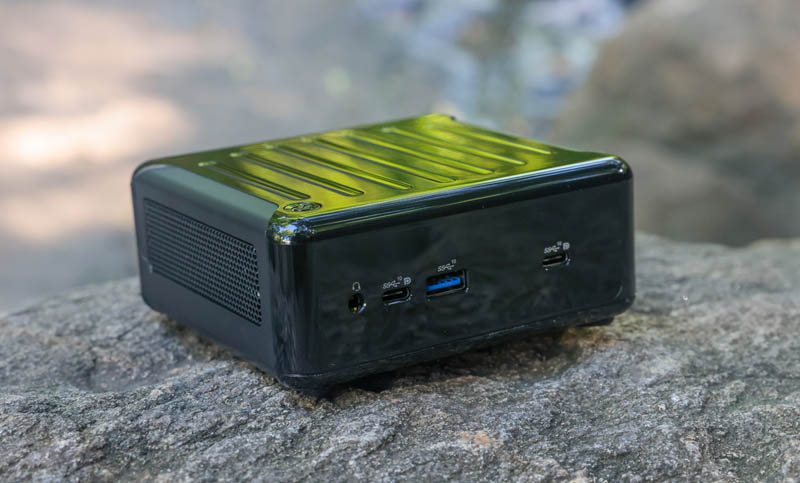
The front of the system has a headset combo jack, and then three USB ports. The USB ports are all USB 3.2 Gen2 ports meaning that they are all 10Gbps ports. One is a Type-A, but the others are more interesting. There are two Type-C ports, and they also support DisplayPort output. This small PC can support four display outputs.
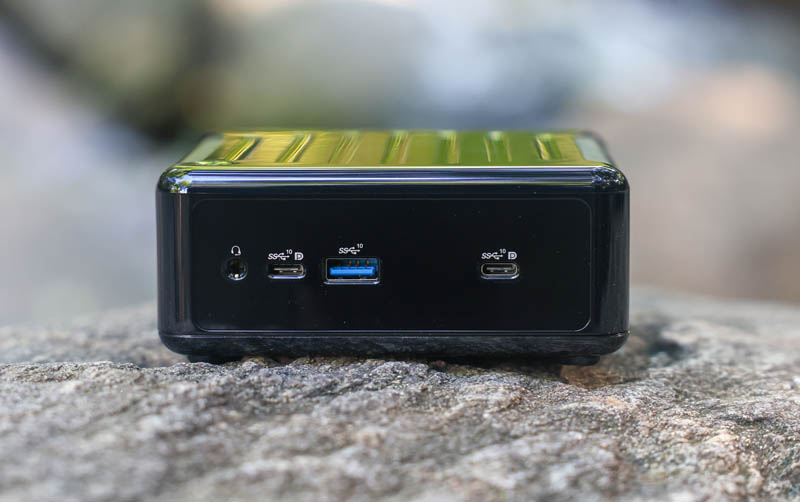
The sides of the chassis are mostly just vents.
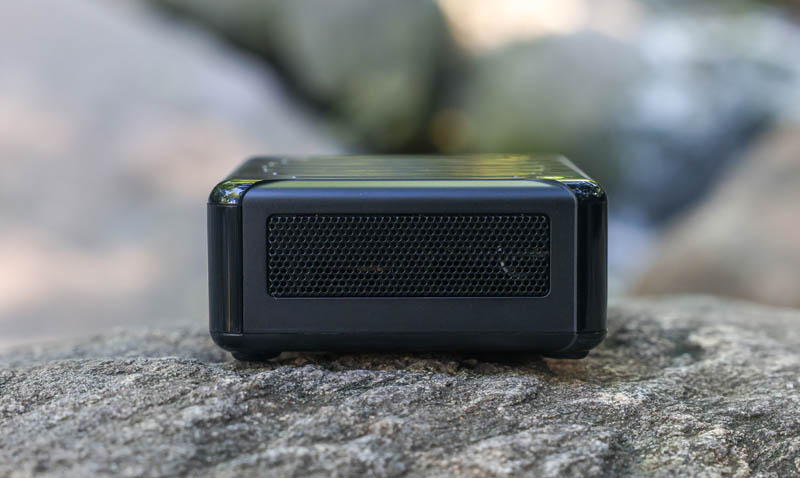
The top is a glossy plastic affair. There is a power button that lights up when the unit is on.
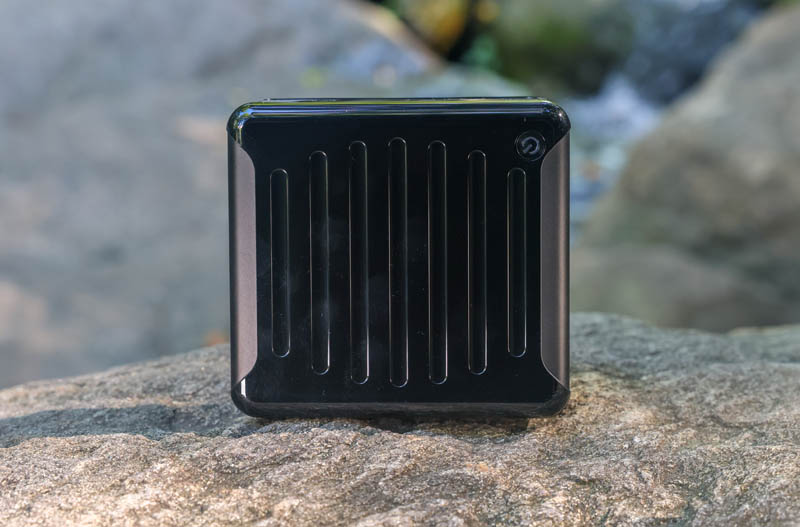
As a quick aside, the unit is a massive fingerprint magnet. It comes covered in plastic protection, and after a few minutes of handling the system, it is easy to see why. It absolutely gets covered in fingerprints quickly. This review was a test review as part of a series I am trying to do testing systems as travel picks up (these are photos from Central Park.) The most challenging part of this photo shoot was managing fingerprints. Hopefully, ASRock can look at a different exterior option. It is from ASRock Industrial, but the plastic chassis is not what we generally see used in industrial automation.
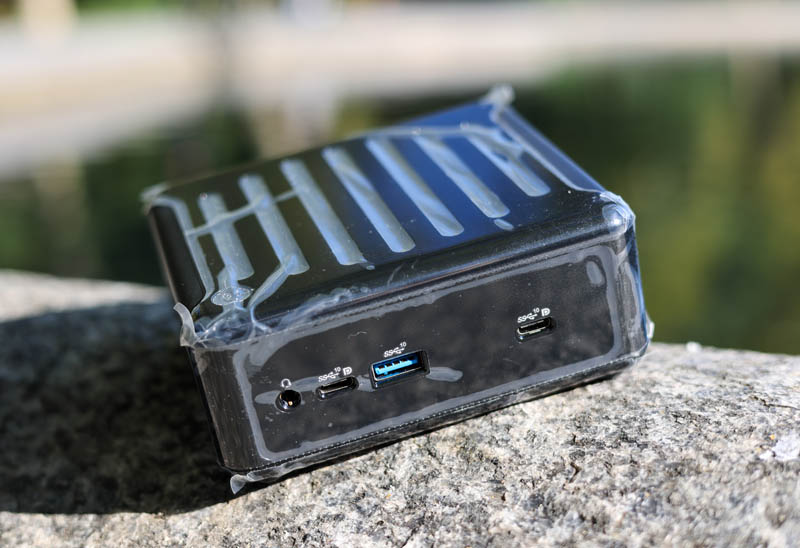
The rear of the unit is full of ports and a relatively giant HDMI sticker to go along with the HDMI label on the accompanying port. That HDMI port is paired with a DisplayPort and that gives us four outputs when counting the front Type-C ports. The two USB ports here are only USB 2.0, making them more of the keyboard and mouse ports. We also have a Kensington lock slot and a 19V DC power input.
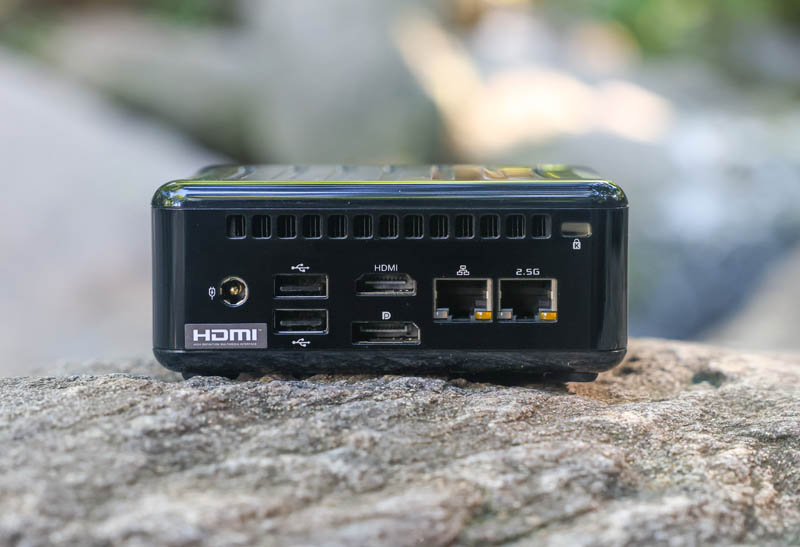
Networking is provided by two RJ45 ports. This is one of the more unique features of the unit. These are powered by the Reltek RTL8125BG for the 2.5GbE port. The other is a Realtek RTL8111-based NIC that can support AMD DASH. To me, I like the dual NIC option, but it feels silly this is not a dual 2.5GbE NIC like it is on the Intel version.
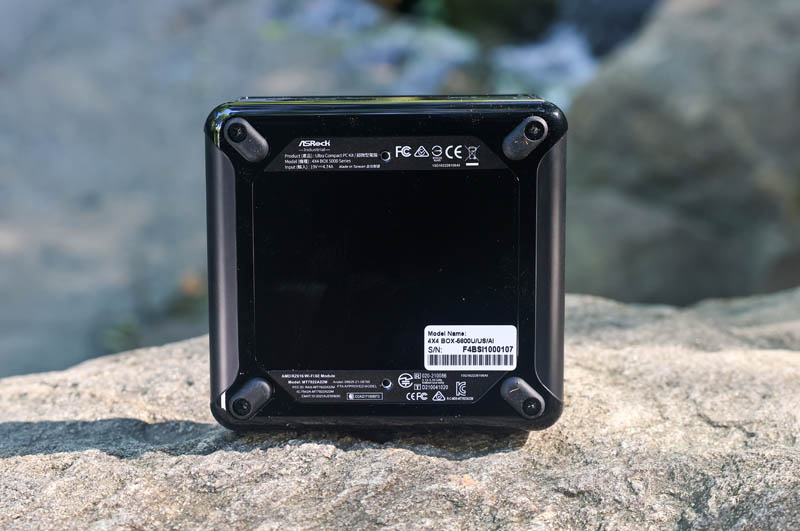
The bottom of the chassis has rubber feet already affixed and VESA mounting brackets. These feet have four screws that can be unscrewed to get inside.
Next, let us take a look at the internals of the system.

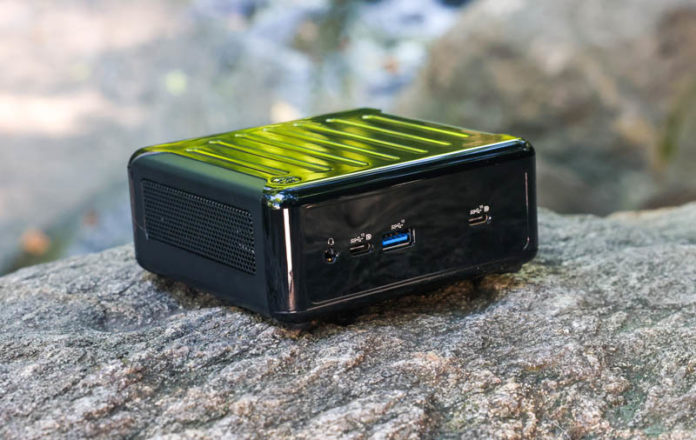
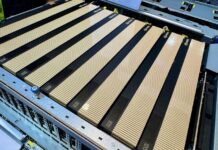
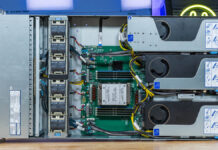
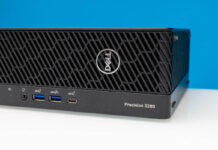
“…but this is much more compact, quieter, and uses drastically less. ”
Less what?
Power
So could this destroy a Nvidia Shield? All it needs is support for a is that can be navigated using a controller and it’s over for the streaming box.
This is amazing. I use their Beebox 16 GB Ram version since announced very happily.
Any updates on the AMD wifi? Has the out of box combatibility improved and is it stable?